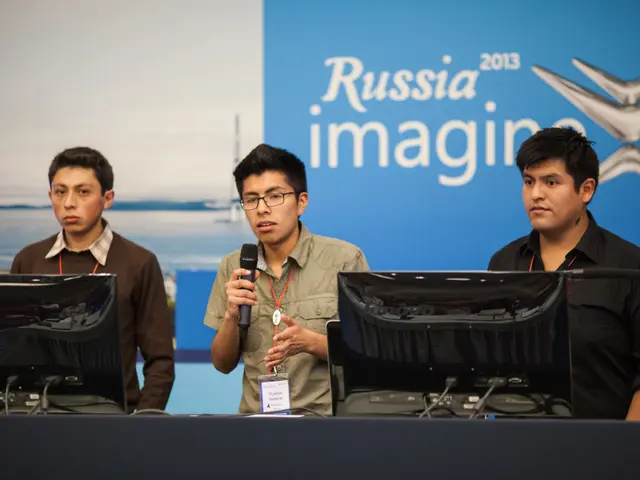U.S.-Pakistan trade and economic cooperation
The United States and Pakistan have a long history of collaboration, with the Regional Cooperation for Development (RCD) involving Iran, Turkey, and Pakistan being one of the notable initiatives. This partnership, established in the past, saw Pakistan as a key player, with significant financial support from the US Presidents like Eisenhower, Johnson, and Nixon during their terms.
However, the history of US-Pakistan oil and gas exploration partnerships has been limited and marked by unfulfilled potential. The country's untapped hydrocarbon potential, particularly in the offshore Indus Basin and in underexplored provinces such as Balochistan and Khyber Pakhtunkhwa, has remained largely unexplored, despite past drilling attempts failing to yield commercially viable oil.
In 2024, Pakistan's Ministry of Energy announced promising preliminary results from offshore seismic surveys, indicating substantial hydrocarbon potential. These findings, however, remain classified as resources rather than proven reserves, as no commercial extraction or exploratory drilling has yet occurred.
The Trump administration entered into new cooperation frameworks with Pakistan to lower tariffs and increase energy sector collaboration, including a deal to jointly develop Pakistan’s oil reserves. While actual production has not materialized, early oil flow has been from the US to Pakistan rather than vice versa.
Several factors complicate the partnership. Pakistan's proven oil reserves are modest, and prior onshore and offshore exploration drilling has failed to find substantial deposits. Security and geopolitical concerns, such as Balochistan's ethnic unrest and anti-Western militant activity, pose risks to energy infrastructure and foreign operators. Additionally, China's dominant regional role and apparent disinterest in US-led oil exploration efforts suggest skepticism about the viability of Pakistan’s oil potential or a strategic tolerance for US presence in limited energy collaborations.
Looking ahead, experts highlight the potential benefits of US involvement, such as technology transfer, advanced exploration methods, and international investment that Pakistan currently lacks. Offshore areas remain substantially underexplored due to resource and security constraints onshore and could represent a transformative opportunity if developed with US partnership.
However, skepticism persists regarding the commercial viability of these reserves and the political-exploration "bluffs" Pakistan has made historically to attract foreign interest. For future collaborations, US companies might focus on advanced offshore seismic and drilling technologies, secure joint ventures, and infrastructure investment, while navigating geopolitical sensitivities involving China and regional security.
Pakistan's economic relations with the US have also played a significant role in its history. From 1947 to 1970, Pakistan's per capita income increased from USD 85 to USD 175 due to these economic relations. Liaquat Ali Khan, Pakistan's first Prime Minister, visited Washington in May 1950, demonstrating Pakistan's loyalty to the anti-Soviet bloc. The US financial support helped build Pakistan's industrial base, creating institutions like PICIC, IBA, and PIDE.
In more recent years, Pakistan sought foreign exchange for industrial development from China, becoming part of the China-Pakistan Economic Corridor (CPEC) in 2015. By the end of 2024, Chinese companies had invested around USD 40 billion in power projects and infrastructure in Pakistan, all loan payable over time. However, the terms of repayment and pricing of products from CPEC were not suitable for Pakistan, leading to challenges.
As Pakistan looks to the future, it needs immediate investment in oil and gas exploration, which can only be provided by the US and the West. The US provided economic aid to Pakistan amounting to USD 20 billion from 1953 to 1970, and the US and Western companies have a history of successful oil and gas exploration in Pakistan, with major discoveries in the Mari Field and Sui Gas field.
Recent developments suggest a renewed interest in collaboration, especially under the Trump administration's policy shift since 2024-2025. Pakistan has reportedly discovered the world's fourth-largest oil and gas reserves in its offshore territory, a development that could transform the country's energy sector and economic future. With the right approach and strategic partnerships, the US-Pakistan oil and gas partnership could be on the brink of a transformative era.
Read also:
- Court petitions to reverse established decision on same-sex marriage legalization
- Commemoration of 200 Days of American Resurgence Unveiled
- Minister Bärbel Bas expresses doubts about her tenure as a minister following a recent interview during the summer.
- A Tale of Two RussiansGate Notable Figures: Focus on Mike Davis







